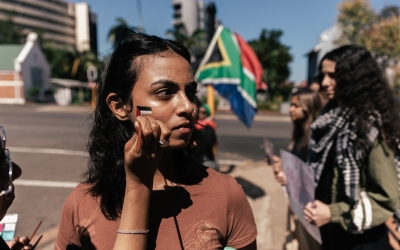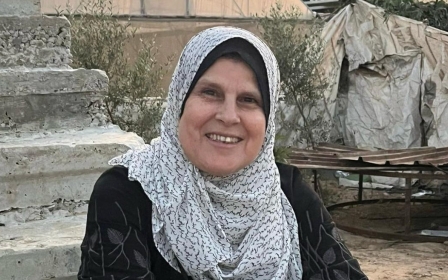Israel-Palestine war: US refrains from comment after first day of ICJ genocide case

The United States remained largely quiet after the first hearing at the International Court of Justice on South Africa's case accusing Israel of genocidal intent in Gaza, with officials opting not to comment while repeating the Biden administration's view that the case is "meritless".
During the opening day of hearings on Thursday, South African lawyer Adila Hassim told judges at The Hague that "this court has the benefit of the past 13 weeks of evidence that shows incontrovertibly a pattern of conduct and related intention that justifies as a plausible claim of genocidal acts".
"Nothing will stop the suffering except an order from this court," Hassim said.
When asked about the case by South Africa, filed last month at the ICJ and which urges the court to order Israel to end its military campaign in Gaza, US State Department deputy spokesperson Vedant Patel said that Washington is not planning to comment on the day's hearing.
"We're going to refrain from any speculation about the outcome," Patel said during a press briefing.
New MEE newsletter: Jerusalem Dispatch
Sign up to get the latest insights and analysis on Israel-Palestine, alongside Turkey Unpacked and other MEE newsletters
"I also think that it is important that we not comment on specific points raised in the day's hearing as Israel will have an opportunity to respond directly to those allegations tomorrow."
The opening day at the ICJ also made little impact on the front pages of major US newspapers on Thursday morning, despite Israel's war in Gaza dominating the news agenda since it began in early October.
Follow Middle East Eye's live coverage of the Israel-Palestine war
The State Department released a statement on Wednesday evening saying that while the US recognises that the ICJ "plays a vital role in the peaceful settlement of disputes", any allegations that "Israel is committing genocide are unfounded".
The statement largely echoes the responses of top Biden officials to the genocide charge, with Blinken saying on Tuesday that the case is "meritless".
'We must refuse to be silent'
South Africa submitted its case against Israel at the ICJ last month and has said Israel's actions in Gaza are "genocidal in character because they are intended to bring about the destruction of a substantial part of the Palestinian national, racial and ethnic group".
The 84-page application is the most significant call for Israel's actions to be labelled a genocide and comes as the Palestinian death toll in Gaza surpasses 23,000, with the majority of the recorded fatalities being women and children.
The response so far from Washington to dismiss the ICJ case has been met with criticism from human rights experts who said the Biden administration is oblivious to increasing concerns that Israel is committing war crimes against Palestinians in Gaza.
"Anyone who watched today's powerful presentation by South Africa to the International Court of Justice would recognize that the US government's facile dismissal of the case as 'meritless' is actually 'clueless'," Kenneth Roth, the former executive director of Human Rights Watch and visiting professor at Princeton, said on X, the social media formerly known as Twitter.
"Israel has a tough job responding tomorrow."
A handful of progressive US lawmakers have come out in support of South Africa's petition and said that the "historical significance of a post-apartheid state filing this case must not be lost", referring to South Africa and its apartheid system that was abolished in 1994.
"We must refuse to be silent as the majority of the world is calling for an end to the violence and mass human suffering, and the need for accountability," said a statement from Congresswomen Rashida Tlaib and Cori Bush.
"As one of the countries that has agreed to the Genocide Convention, the US must stop trying to discredit and undermine this case and the international legal system it claims to support."
Middle East Eye delivers independent and unrivalled coverage and analysis of the Middle East, North Africa and beyond. To learn more about republishing this content and the associated fees, please fill out this form. More about MEE can be found here.





